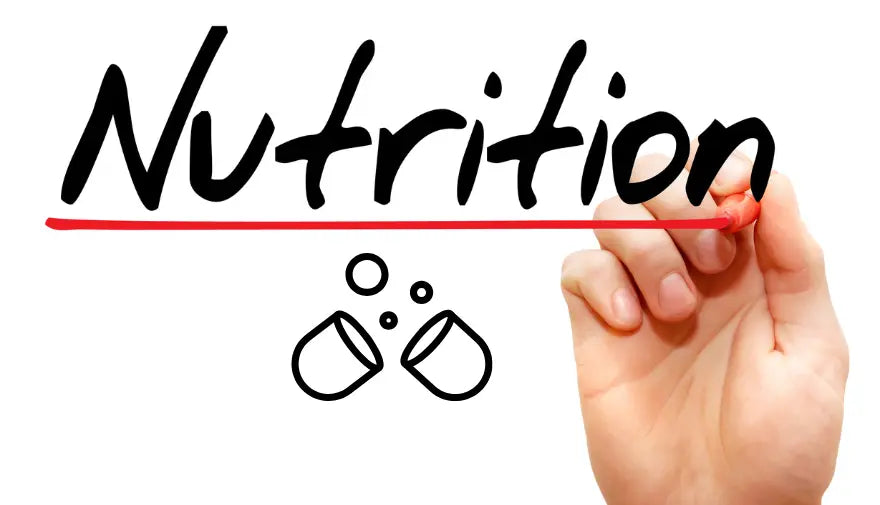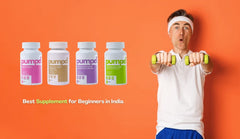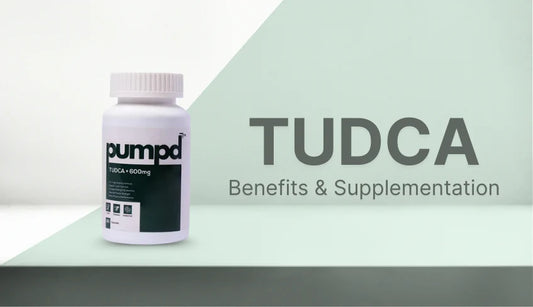
The Science of Fitness Nutrition - What Your Body Really Needs
Resulting from both ambition and effort, modern training has a tendency to be heavily weighted towards workouts and training techniques. However, what drives consistent performance, recovery processes, and long-term adaptations is often a factor more fundamental than workouts—nutrition.
The science of fitness nutrition has progressed from solely calories and macros to include nutrient timing, biochemical individuality, and evidence-based supplementation.
To support such a holistic approach, Pumpd provides clinically-proven health supplements designed to assist the real physiological needs of active individuals. Whether you're building a personalised exercise and diet plan or seeking the best recovery supplement after training, understanding what your body requires is the first step.
This blog explores those exact needs—and how to meet them with precision.
Macronutrients: The Building Blocks of Performance
Protein: More Than Muscle Repair
Protein is the foundation of any performance nutrition plan. It does a lot more than support muscle recovery—it supports enzyme function, hormone function, and immune function. In general, recovery and performance ranges will be from 1.2-2.0 g/kg/BW per day for physically active individuals. The ranges are going to increase depending on if you are in a caloric deficit or have high training volumes.
Timing matters when it comes to protein.
- Optimal dosing for muscle protein synthesis (MPS) is 15–25g of high-quality protein consumed within two hours of training.
- Whey isolate, such as the one sold by Pumpd store, provides quick absorption of amino acids, making it ideal for the anabolic window post workout.
- Casein absorbs a lot slower and can be useful for overnight recovery.
- Plant-based athletes can consume protein with complete amino acid profiles. For example, combining protein sources will allow athletes to meet leucine thresholds for effective MPS activation. An example of this includes combining peas and brown rice for amino acid profiles.
Carbohydrates: the fuel of choice for the body
Carbs, the body's fuel Carbohydrates are important fuel for both aerobic and anaerobic performance; the glycogen stores can sustain endurance events and can also provide limited help during high-intensity bouts of weight-training activities. Endurance athletes basically need around 6-10 g/kg/day of carbohydrate, just to maintain energy stores. Generally, while exercising for longer durations (>2 hours), the athlete will perform well with daily carbohydrate consumption in the range of 30-90 g/hour.
So for the purpose of maximising total output, consume carbohydrates pre-workout (ideally 3-4 hours before your training) in quantities of 3-4 g/kg for the ultimate desired enhancement.
Fats: Essential, Not Optional
Contrary to common belief, dietary fats are not detrimental to fitness. They support hormone production, provide energy during low-intensity activity, and carry fat-soluble vitamins.
- Omega-3 fatty acids (EPA and DHA) reduce muscle soreness and support joint health.
- Monounsaturated fats from nuts, seeds, and olive oil improve blood flow during aerobic exercise.
- Excess saturated fats, however, can impair insulin sensitivity and slow recovery.
- Including omega-3 rich supplements or functional oils as part of a fitness diet can be particularly helpful during heavy training blocks or injury recovery phases.
Micronutrients: The Subtle Regulators
Electrolytes and Mineral Balance
Electrolyte loss through sweat is a significant concern, particularly in endurance settings. Sodium and potassium levels must be actively replenished to avoid cramps, fatigue, or hyponatraemia.
- Sodium loss can exceed 1,200 mg/L of sweat.
- Potassium regulates muscle contractions and nerve signalling.
- Magnesium plays a role in ATP production and muscle function.
Iron, Calcium, and Vitamin D
- Iron is essential for oxygen transport and energy metabolism, especially in runners and women.
- Calcium, paired with vitamin D3, supports bone density and muscle contraction, particularly in athletes involved in high-impact or strength-based sports.
- D3 also enhances immunity and aids in type II muscle fibre function.
Pumpd's D3 + K2 supplement combines two critical nutrients that promote both bone strength and cardiovascular health—ideal for athletes navigating heavy loads or periodised training phases.

Hydration: Performance Hinges on Fluids
Effects of Dehydration
Even a 2% body weight loss in fluid can cause a significant decline in cognitive function and thermoregulation. Dehydration is also associated with reduced coordination, longer reaction times and compromised endurance.
Smart Hydration
Post-exercise hydration should exceed sweat loss by 125–150%, incorporating electrolytes and sodium to optimise fluid retention.
Pumpd’s Hydration Support products, including oral rehydration options and effervescents, offer effective and easy-to-use replenishment solutions.
Supplementation: Bridging the Performance Gap
Creatine Monohydrate: Power, Strength, Recovery
Creatine enhances phosphocreatine availability, enabling rapid ATP regeneration during short bursts of effort. It is widely recognised as the best recovery supplement for resistance training and sprint performance.
- Improves strength by 5–10%.
- Increases power output and anaerobic endurance.
- Enhances post-workout muscle glycogen storage.
BCAAs and Beta-Alanine
BCAAs aid in muscle recovery and diminish fatigue especially when training fasted, or when caloric deficit is a goal. Beta-Alanine increases the muscle carnosine content and delays fatigue during high-intensity work.
Multivitamins: Daily Peace of Mind
An athlete can consume a perfectly balanced diet, and still come up short due to timing or the degree of difficulty in everyday life—busy schedules sometimes force compromises. A multivitamin covers all the bases with important micronutrients that play a role in metabolism, immunity, and energy.
Pumpd's Daily Multivitamin supplement aims to cover those nutritional gaps without megadosing; just smart and effective support for an active body.
What to Eat before Training
A meal before training will provide energy, support focus, and delay fatigue.
Ideal components include:
- Easily digestible carbohydrates (bananas, oats, toast)
- Lean protein (eggs, yoghurt, whey shake)
- Hydration (water with electrolytes)
For those short on time, a Pumpd Whey Isolate Shake paired with a piece of fruit offers a compact, effective pre-workout fuel combination.
Workout and Diet Plan: Bringing It All Together
Creating a sustainable exercise and diet plan involves matching nutritional intake with energy expenditure, training goals, and recovery needs.
Here’s a sample structure:
| Time | Action | Nutritional Support |
|---|---|---|
|
Morning |
Light cardio or mobility |
Hydration + Pumpd Multivitamin |
|
Pre Workout |
Strength or HIIT session |
Whey Isolate + Banana + Creatine Monohydrate |
|
Post Workout |
Recovery nutrition |
Carbs + Protein Shake + Electrolyte Rehydration |
|
Evening |
Low-intensity walk or stretch |
Balanced meal + D3 + Omega-3 |
|
Night |
Sleep and repair |
Optional: Casein Protein or Magnesium Support |
To Summarize
Fitness is not only made in the gym, it's built over time with time; recovery, nutrition, and habits all play a role. The body's limitations are complex, with numerous dimensions. Nutritional needs are based on training volume, goals, and individual physiology.
If you want to buy supplements online, explore the Pumpd store. Each product is based on evidence, manufactured in-house, and tested, so you can be certain what you're taking is effective. If you're trying to optimise strength, endurance, recovery, or overall health, fitness nutrition is the common thread that runs through everything.
Understanding what and when to eat before training, how to optimally recover in the hours after training, and how to incorporate the appropriate supplements are all pieces of the puzzle toward making the work you put into working out, training, and performing effective and ultimately lead to change that sticks.







